Search Results
Showing results 1 to 14 of 14
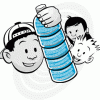
Go With the Flow
Source Institutions
In this activity, learners will observe laminar and turbulent flow of water using only a plastic bottle, liquid hand soap, food coloring and water.
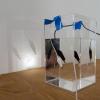
Convection Current
Source Institutions
In this activity, learners make their own heat waves in an aquarium.

Outrageous Ooze: Is It a Liquid or a Solid?
Source Institutions
This activity provides instructions for using cornstarch and water to make an ooze which has the properties of both a solid and liquid.
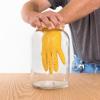
Fog Chamber
Source Institutions
In this weather-related activity, learners make a portable cloud in a bottle.
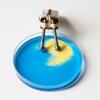
Indicating Electrolysis
Source Institutions
Electrolysis is the breakdown of water into hydrogen and oxygen. This Exploratorium activity allows learners to visualize the process with an acid-based indicator.
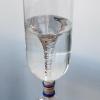
Vortex
Source Institutions
In this activity, learners create a tornado in a bottle to observe a spiraling, funnel-shaped vortex. A simple connector device allows water to drain from a 2-liter bottle into a second bottle.
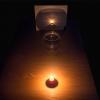
Water Sphere Lens
Source Institutions
In this activity about light and refraction, learners make a lens and magnifying glass by filling a bowl with water.
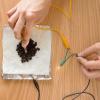
Aluminum-Air Battery: Foiled again!
Source Institutions
Construct a simple battery that's able to power a small light or motor out of foil, salt water, and charcoal. A helpful video, produced by the Exploratorium, guides you along on this activity.

Geyser
Source Institutions
This Exploratorium activity can be used in many contexts because geysers are great opportunities for learning about heat and temperature changes as well as geological/space science phenomena.
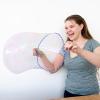
Bubble Tray
Source Institutions
In this activity, learners use simple materials to create giant bubbles.
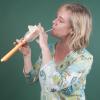
Waterbottle Membranophone
Source Institutions
In this activity, you'll use a straw, a water bottle and a paper tube to make an instrument that's very much like a saxophone.
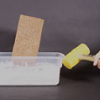
Earthquake Science: Soil Liquefaction
Source Institutions
This activity demonstrates liquefaction, the process by which some soils lose their solidity during an earthquake.
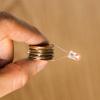
Penny Battery
Source Institutions
In this activity, learners light an LED with five cents. Learners use two different metals and some sour, salty water to create a cheap battery.

Critical Angle
Source Institutions
In this optics activity, learners examine how a transparent material such as glass or water can actually reflect light better than any mirror.
